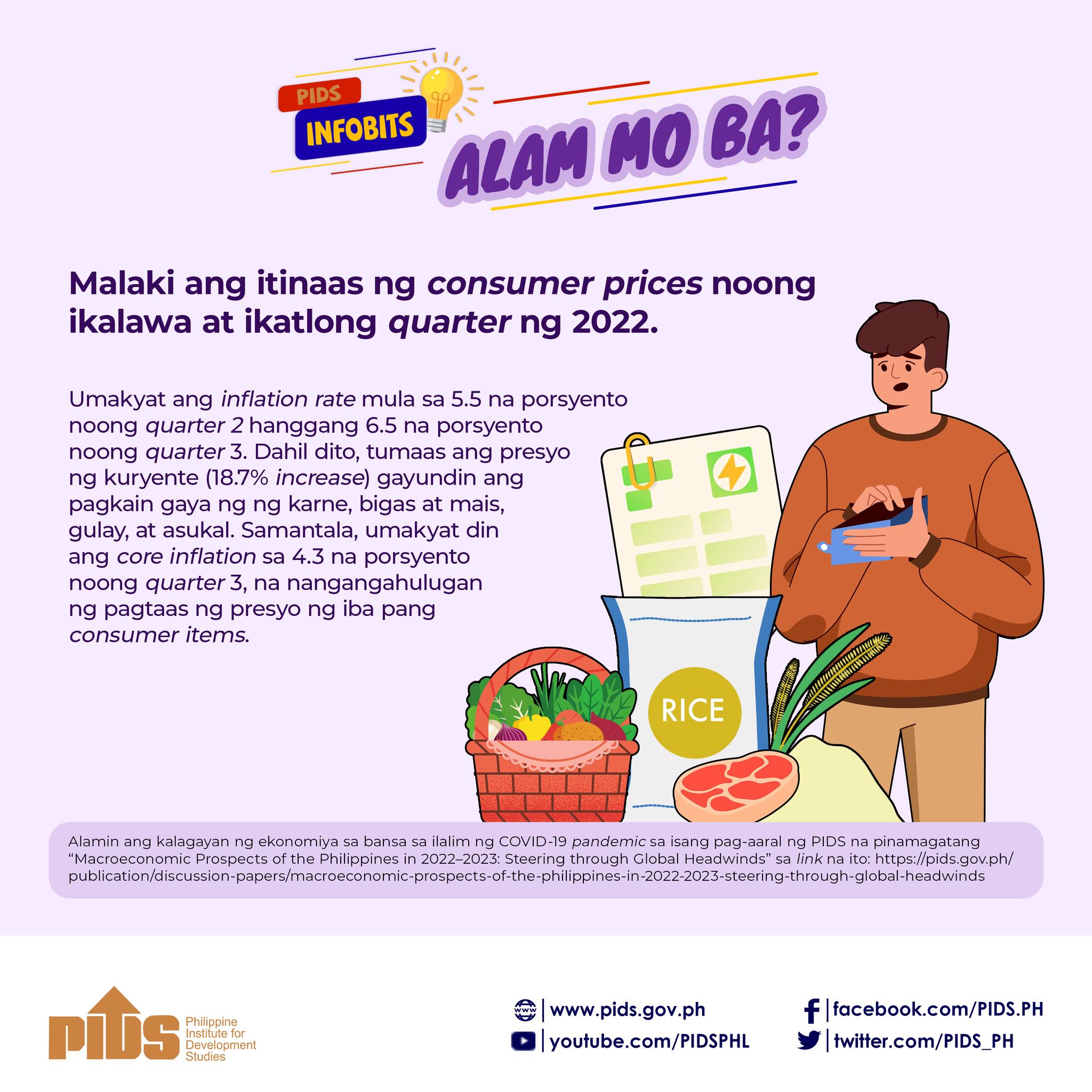Using a political economy perspective, this paper establishes the strong relationship between rice and politics and explains recent developments in the Philippine rice landscape. Results of the analysis show that the price of rice has been a significant determinant in election results since the 1950s, with the exception of 1998, where despite stable prices, the candidate from the incumbent administration failed to win the presidential elections. In addition, reliance by the Philippine government primarily on price instruments to achieve its rice objectives and to protect farmer and consumer interests has not resulted in any substantial improvements in rice production. In fact, the shift to rice protection since the 1980s has failed to stabilize domestic rice prices and has effectively penalized the poorer households. This has been traced largely to the failure of the National Food Authority to provide timely, accurate, and appropriate intervention in the country鈥檚 rice market. If the Philippines is to achieve sustained, stable rice supply at low prices and at the same time promote rice consumer and producer welfare, the adoption of a private-focused, market-based regulatory regime without a rice trading parastatal (but with rice emergency reserves, not for price stabilization) remains as a long-term objective.
Citations
This publication has been cited 14 times
- Bali茅, Jean and Harold Glenn Valera. 2020. . Food Policy, 92(C). Elsevier.
- Briones, Roehlano M. and Beulah Dela Pena. 2015. . Discussion Papers DP 2015-04. Philippine Institute for Development Studies.
- Cuaton, Ginbert and Laurence L. Delina. 2022. . Palgrave Communications. 9, No. 1, 1-21 . Palgrave Macmillan.
- de Guzman, Rosalina G. et. al. 2010. . Philippine Journal of Development PJD 2009 36, no. 1. Philippine Institute for Development Studies.
- de Guzman, Rosalina G. et. al. 2009. . Discussion Papers DP 2009-28. Philippine Institute for Development Studies.
- Grabowski, Richard. 2015. . Journal of Social and Economic Development, 17, No. 2, 167-183. Springer.
- Hoang, Hoa K. and William H. Meyers. 2015. . Food Policy, 57(C), 26-39. Elsevier.
- Mataia, Alice B. et. al. 2020. . Asian Journal of Agriculture and Development, 17, no. 2. Southeast Asian Regional Center for Graduate Study and Research in Agriculture (SEARCA).
- Mina, Christian D. and Celia M. Reyes. 2009. . Discussion Papers DP 2009-09. Philippine Institute for Development Studies..
- Reyes, Celia M. and Christian D. Mina. 2009. . Development Economics Working Papers 22686. East Asian Bureau of Economic Research.
- Reyes, Celia M. et.al. 2009. . Development Economics Working Papers 22687. East Asian Bureau of Economic Research.
- Senate Economic Planning Office. 2012. . Working Papers id:4814. eSocialSciences.
- Sobrevinas, Alellie B. et. al. 2009. . Discussion Papers DP 2009-07. Philippine Institute for Development Studies.
- Panganiban, Jose Jr. 2018. . House of Representatives.

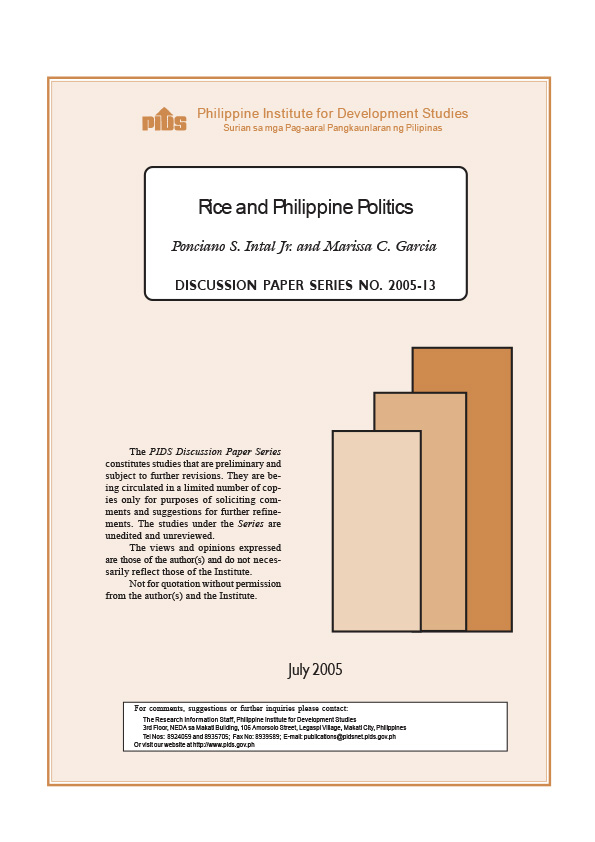
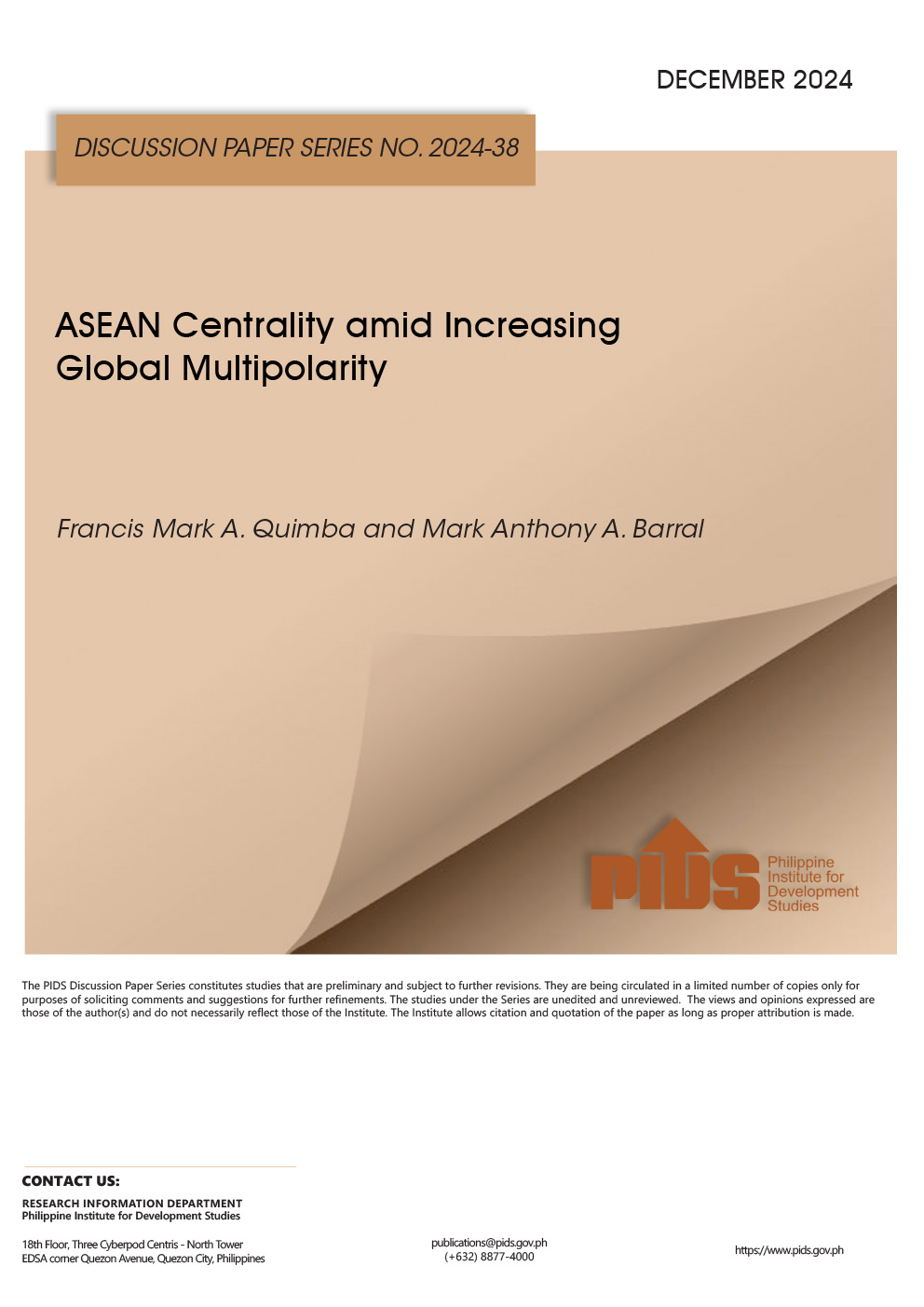
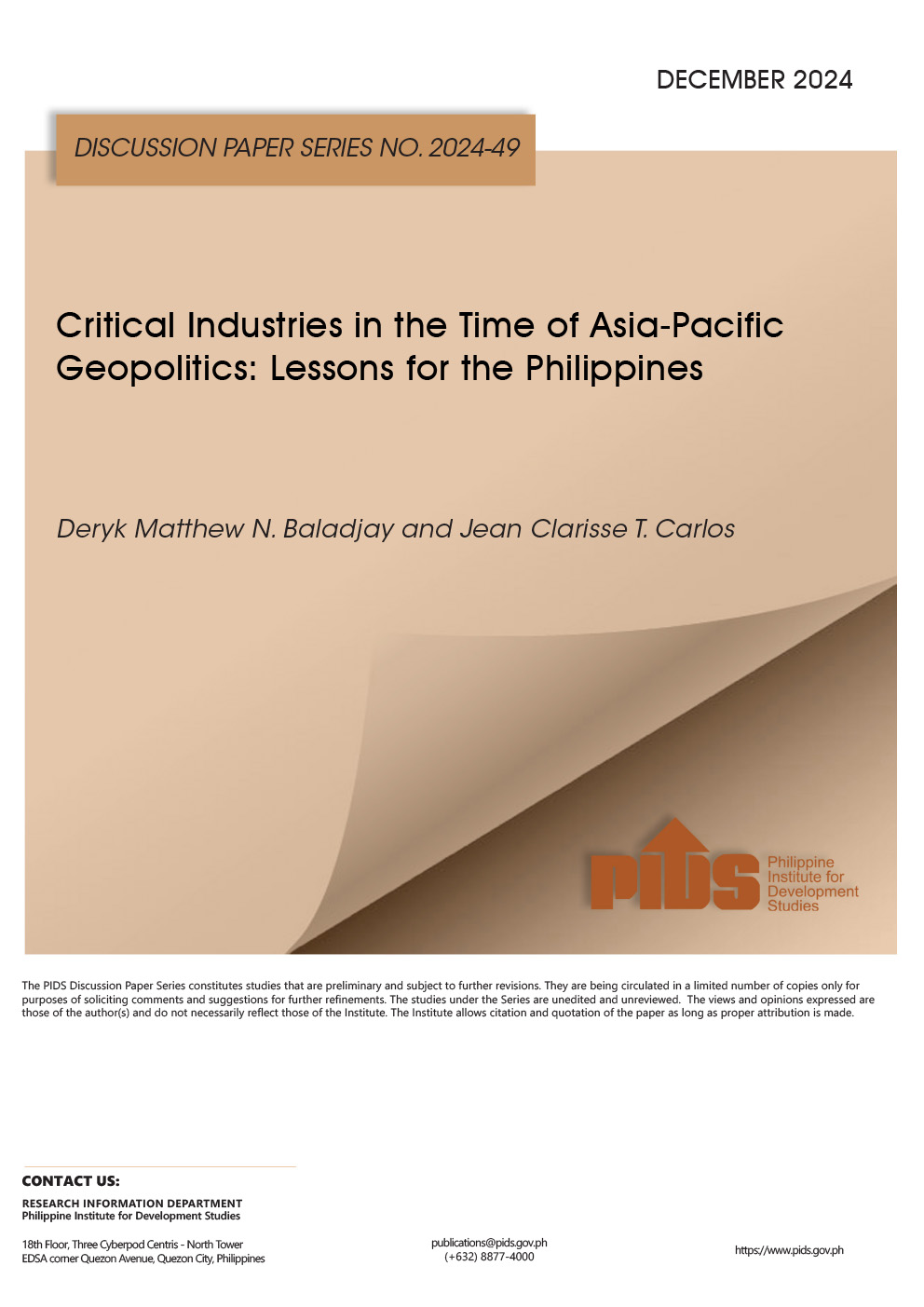
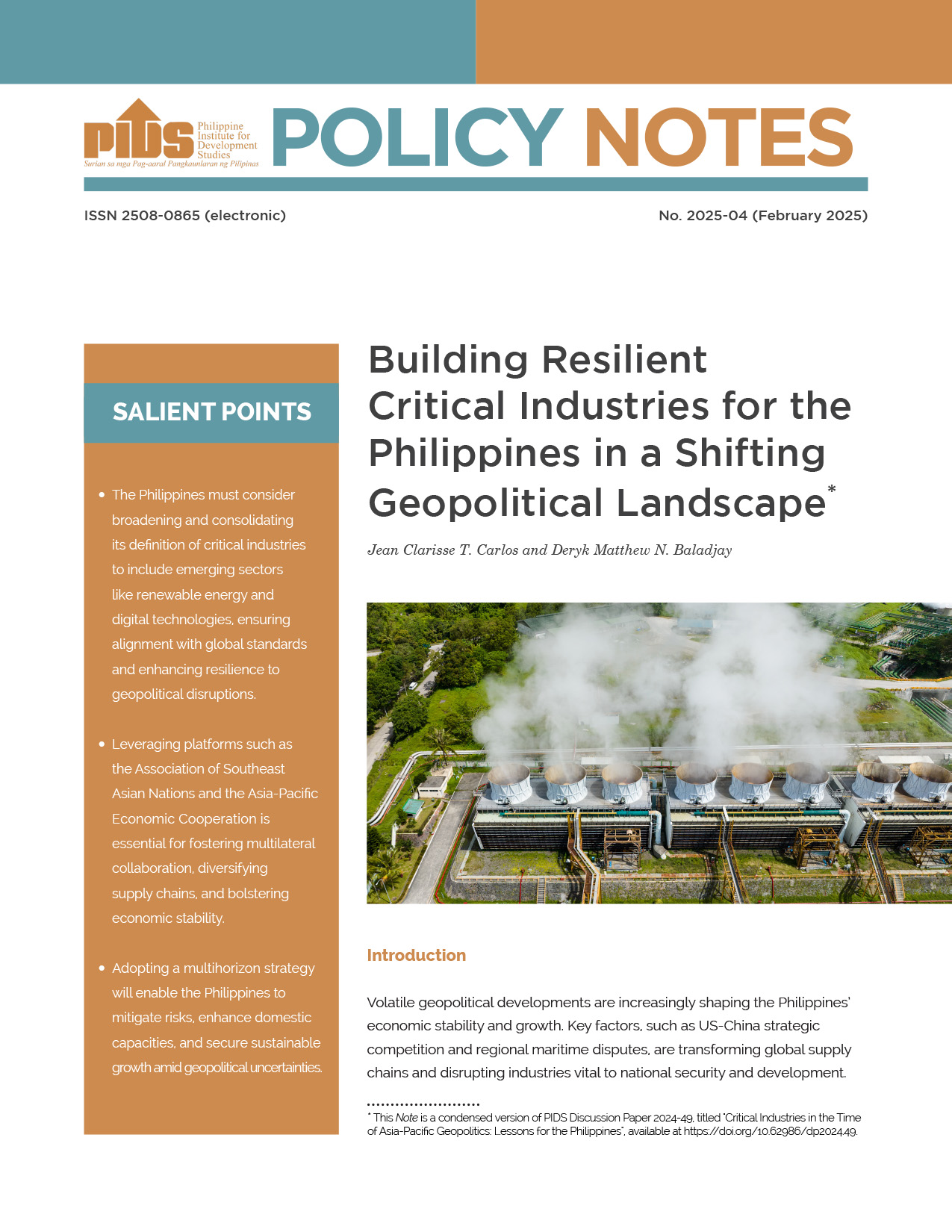
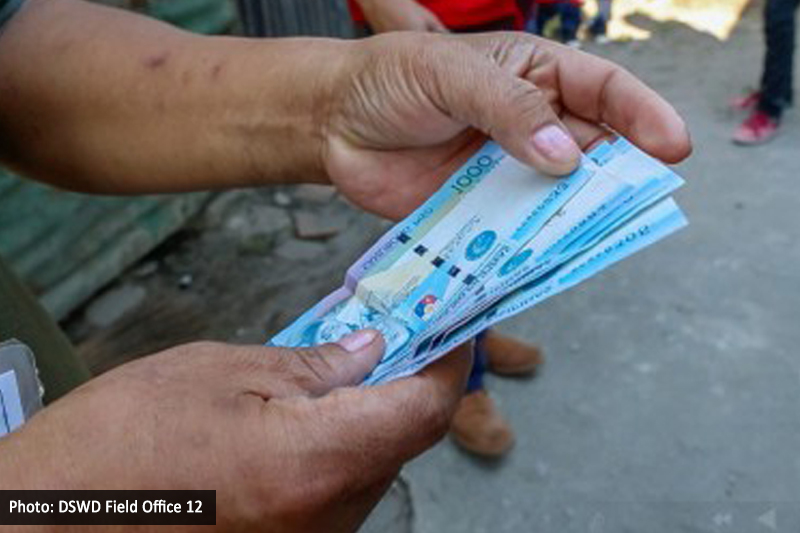

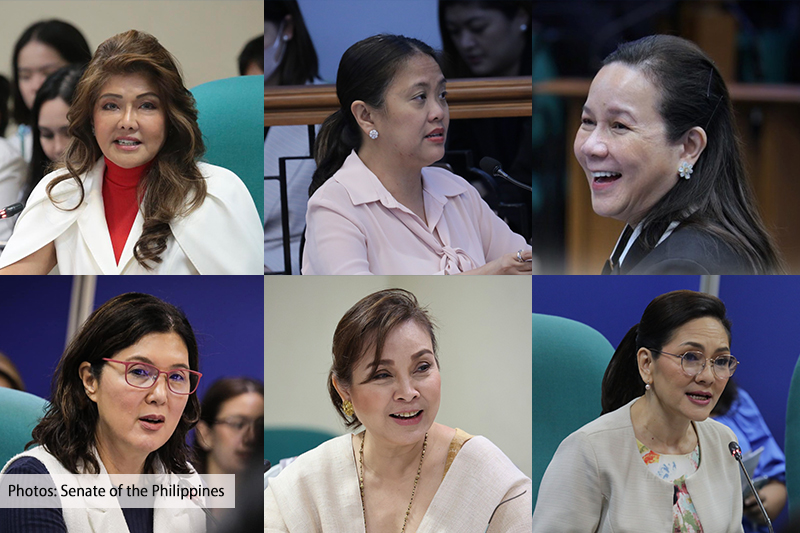
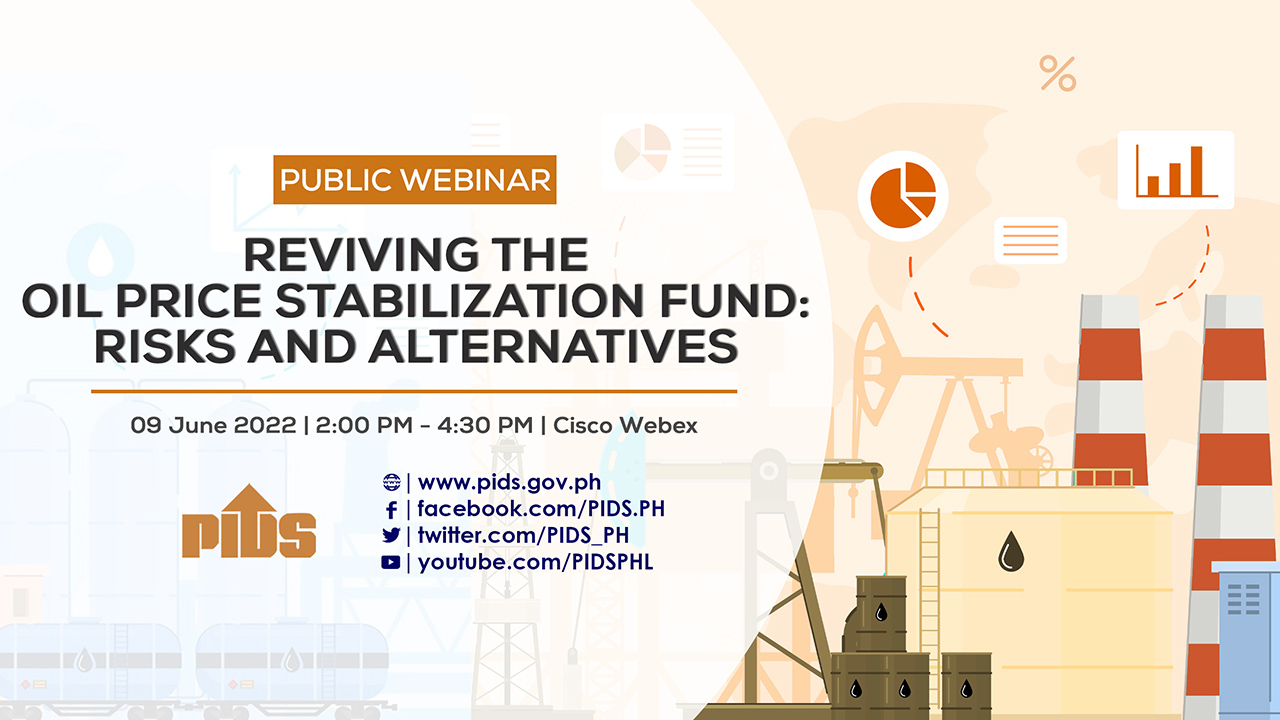

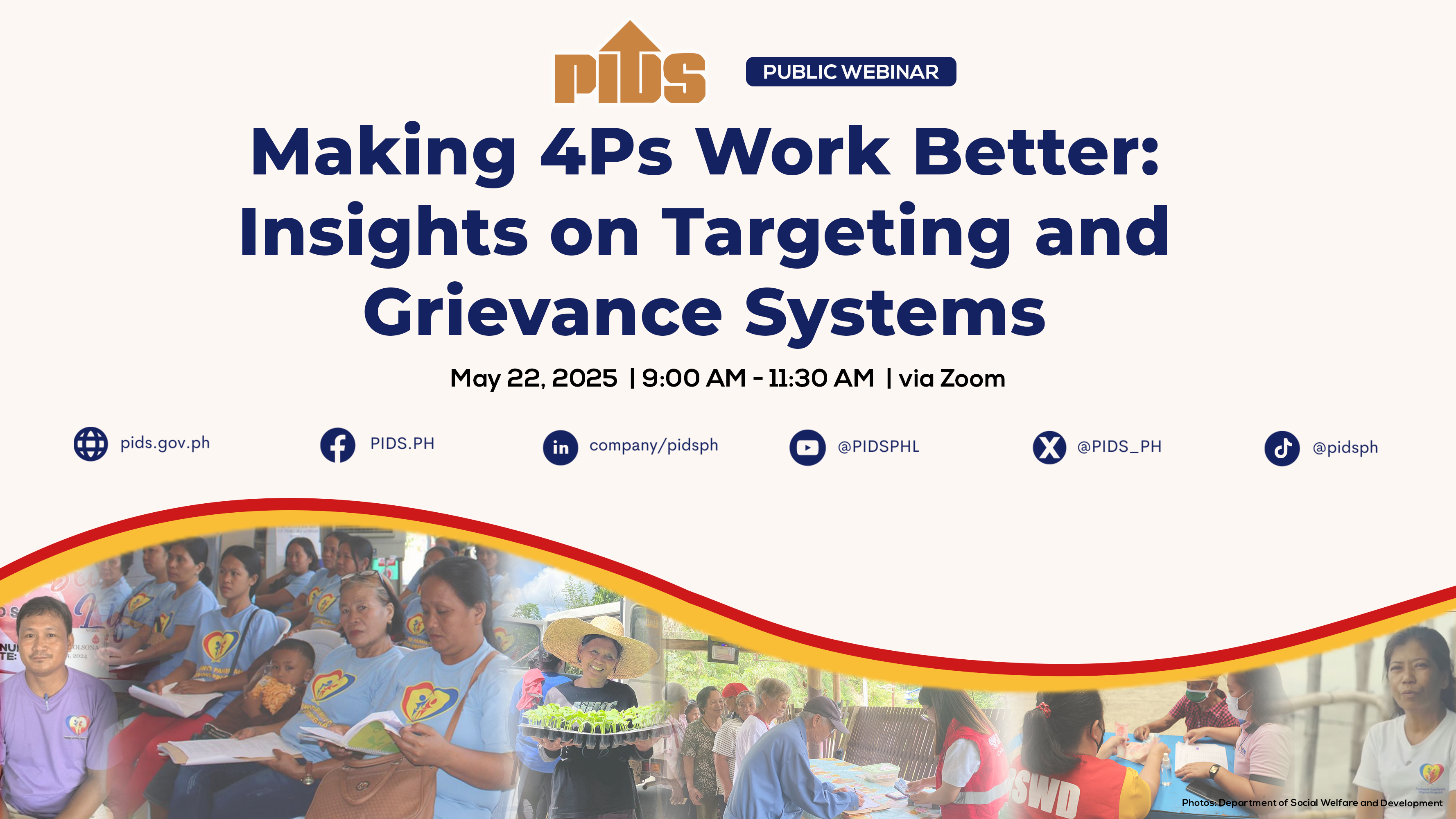
.jpg)
